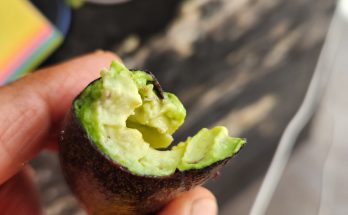By Diana Hoogesteger
Corn has been the staple food in the Americas for many peoples for centuries. It has been their livelihood, culture, worldview, exchange, and economy throughout the continent and across the seas. The writings of the Popol Vuh say that we are men and women of corn because we were created out of corn. We carry it in our blood and our hearts. But do we carry it, or did we carry it? Hippocrates said, «We are what we eat.» What do we eat today? We will see a little of what is happening with corn in Mexico and worldwide.
One of the main issues and problems is biodiversity. Corn exists in multiple breeds, sizes, and shapes. There are 220 races of maize registered in the Americas, and 64 of them come from Mexico. The Green Revolution began in 1960 in the United States, spreading to the entire world with massive food production. Traditional practices, knowledge, and products have been disappearing. Biodiversity and global health go along with them. Monocultures have replaced the milpas (indigenous rights peace movements) with the use of pesticides and herbicides. The seed companies fight the «intellectual property of seeds» by patenting them and genetically modifying them to be more resistant and grow faster. The worldwide controversy for decades has the long-term reality of undeniable consequences: the loss of biodiversity, the contamination of water, land, air, plant, and grain; the nutritional decline of corn, and a global monopoly of the companies that produce it, bankrupting thousands of peasants or forcing them to rent or sell their land to large companies.
Did you know that about 63 percent of grains (corn is the most widely produced grain) are used for livestock feed, and 80 percent of water consumption is destined for agricultural production? Also, in the last 40 years (since the green revolution), we have desertified a quarter of the planet’s arable land with industrial agriculture!
Corn is also used to produce biofuels (to extract starch, oils, and other substances for industrial uses). The countries with the highest production are the USA, China, Brazil, and Argentina. It all probably comes from genetically modified seeds (GMO) that go hand in hand with the toxic herbicide glyphosate, which has caused environmental and health disasters.
But let’s go back to the corn of Mexico and what we eat here. Who still eats nixtamalized corn tortillas made by hand from Creole corn? The tortillas from most tortilla factories and industrialists are made from corn dough, which no longer goes through the fermentation or nixtamalization process, which makes a big difference in the nutritional quality of the tortilla. Recent studies show that the levels of calcium, dietary fiber, antioxidant capacity, and chemical composition of handmade tortillas are significantly better than those of industrialized ones. In addition, the corn used in the industrial dough is primarily imported and comes from GMO corn.
Today, yellow and white corn displace native varieties, monoculture corn works versus the milpas, and bread and box cereals replace atole and tortillas. Pizzas and hotdogs are served more often at parties than pozoles and gorditas, just as industrial products are more common than fresh food, and soft drinks are consumed more than fruit water. The question is whether we are men and women of the industry. It seems so. Because global homogenization exists in food, knowledge, and culture, the natural wealth of diversity that sustains life on earth—in plants, animals, food, and in ourselves—is disappearing.
Fortunately, there are people, towns, organizations, and individuals dedicated to the rescue, propagation, and exchange of native, Creole, and natural seeds. Some farmers keep the traditional knowledge of planting, and groups of women and men preserve the ancient practices of the various culinary uses of corn. It is up to us to recognize them, support them by consuming their products, protect them, and acknowledge their value—reserving the health and life of the people. Fortunately, some care for and support the fields because, without fields, there is no life.
How can you help? You can consume handmade tortillas and native Mexican corn and inform yourself with support for organizations that protect corn: Vía Orgánica, A.C., Mexican Corn Tortilla, Without Corn there is no Country, Organization of Organic Consumers, International Regeneration, Alianza Salud, El Poder del Consumidor.
We can all make a difference.




